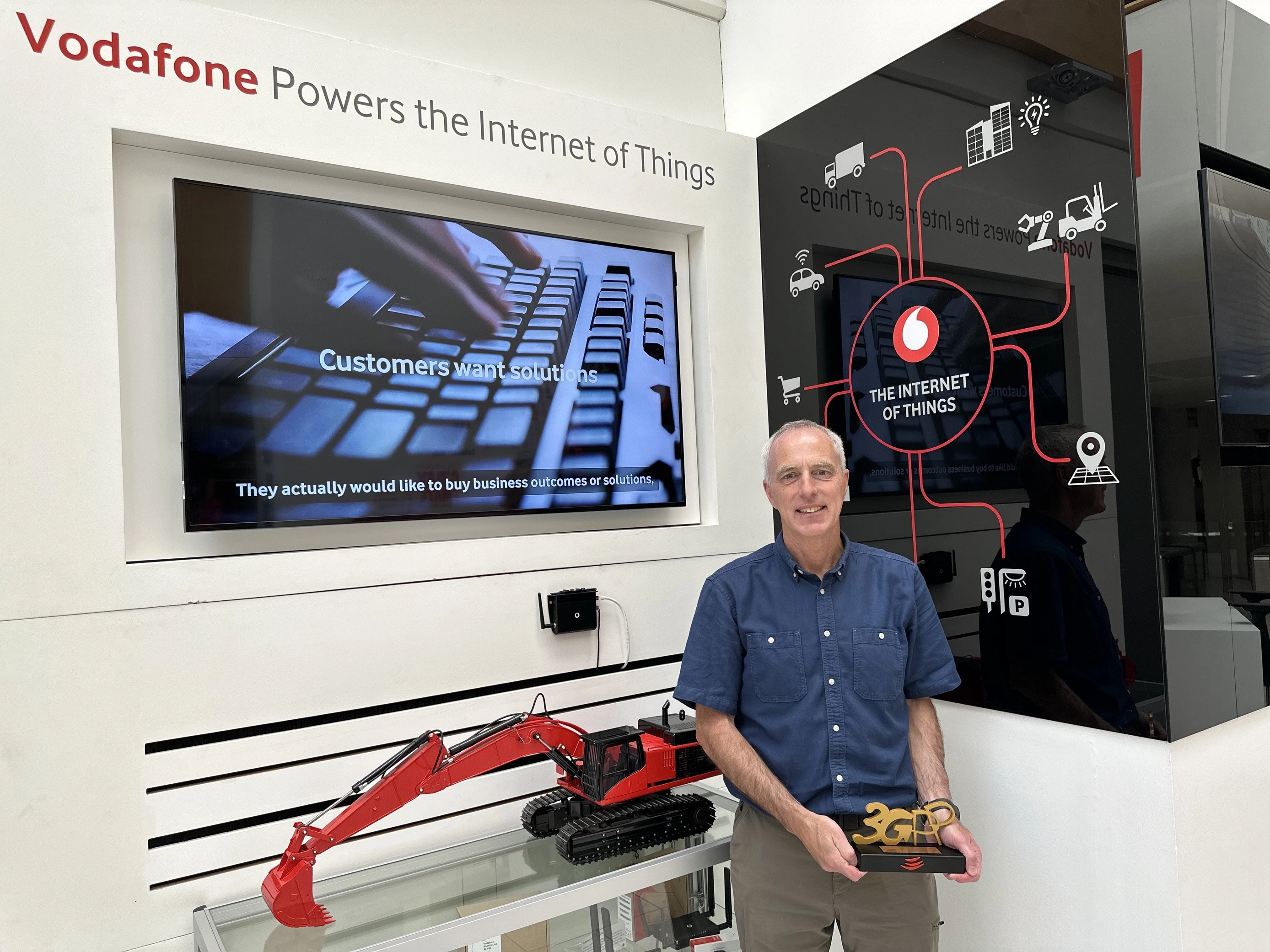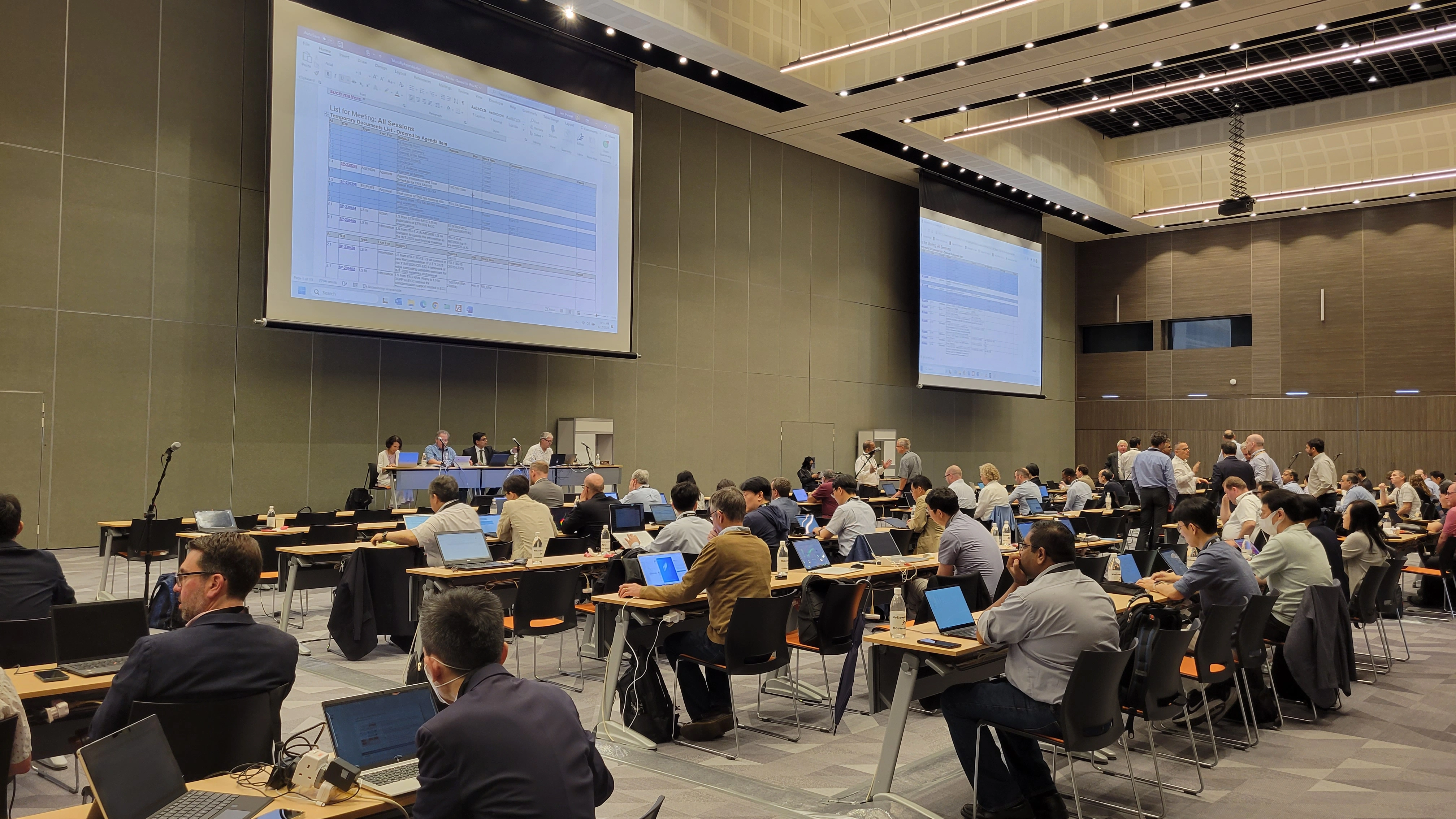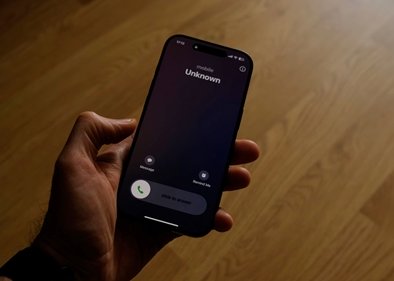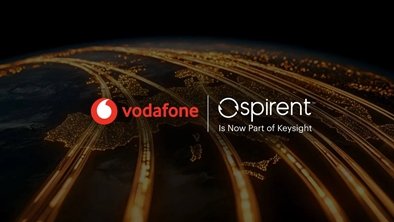Global standards body, 3GPP, hands Chris Lifetime Achievement Award
When Chris Pudney isn’t running half marathons, he’s racing to get new global telecommunications standards over the line for everyone’s benefit.
For 30 years, the Head of Radio and Mobile Architecture Standardisation at Vodafone has been making it possible to use devices and smartphones anywhere in the world, connecting business customers and emergency services and supporting billions of messages and apps. Almost every mobile service we take for granted today is built on standards that Chris helped develop.
Way back in 2001, as part of his work for 3GPP, Chris was instrumental in developing and standardising a signalling function that enabled mobile traffic from radio base stations to connect to multiple (rather than just one) core network nodes. This allowed nascent 3G networks to become more resilient and cost effective.
This change was retrofitted onto 2G networks and adopted without question in the design of 4G and 5G networks. It underpins the way mobile networks work today and is used many billions of times per day.
Lifetime Achievement Award
In recognition of this achievement, and many more, 3GPP recently handed Chris a Lifetime Achievement Award, one of only eight given since 3GPP’s inception in 1998.
3GPP unites seven telecommunications standard development organisations to produce truly global standards and its influence is felt across the technology landscape. It develops protocols for almost every mobile telecommunications service, including 5G and Internet of Things (IoT), and now has an eye on 6G (although this is likely to be a software upgrade).
Without these global standards, the industry would struggle to deliver ever increasing data volumes at ever increasing speeds to increasingly demanding consumers. Also, there wouldn’t be a hotbed of new business sectors helping companies innovate faster. And the telecoms industry wouldn’t be able to improve the lives of billions of people in underserved and under-connected countries.
Tremendous Accolade
Alberto Ripepi, Chief Network Officer at Vodafone, explained: “This is a tremendous accolade as 3GPP is a major standards body that ensures the mobile networks customers use every day are robust and interoperable. With more than 2,000 people attending its meetings and almost every country worldwide represented, a Lifetime Achievement Award represents global recognition.
“We could not be prouder of Chris and his work to connect not just our 300 million plus mobile customers but those of the entire industry.”
Standards Across Oceans
Since joining Vodafone more than 30 years ago, Chris has stamped his mark on the industry. His vision and technical leadership in producing standards for a high quality 4G architecture was key to convincing large U.S. carriers to adopt it. This was akin to the Betamax versus VHS format war of the late eighties.
Against the backdrop of a divided technology landscape where rival mobile standards were vying for supremacy here and across the pond, Chris’ standards prevailed, further fuelling the smartphone revolution, and the ultimate demise of WiMAX as a rival standard.

Through Choppy Waters
Chris’s passion for sailing has helped him steer customer-focussed technologies through many choppy geo-political waters. For example, in 2014 at a time when 2G was the main underlying network for the Internet of Things (IoT), Chris spear-headed efforts to secure universal support for a more energy and cost-efficient and effective technological variant, despite arguments against the move by some big industry vendors.
Enter Narrowband IoT (NB-IoT), which is now used to connect more than 250 million devices providing wide area, and deep in-building, coverage with a device battery life of up to ten years.
Chris explained: “NB-IoT now allows Vodafone Business customers the world over to connect everything from sensors monitoring air and water quality to smart sensors used in multiple sectors such as agriculture and healthcare.”
Emergency Services
Also, thanks in part to Chris, emergency services today have a more reliable and faster mobile network used to link first responders with control centres and ensure different agencies can communicate with each other more effectively.
He shaped the 3GPP work schedule to drive the transition across the industry from TETRA (Terrestrial Trunked Radio) – a two-way radio and short messaging system – to 4G, helping to meet the growing demand from ambulance, fire and police services for real-time data and video from the scene of incidents using more commonly supported devices (like mobiles). In particular, he ensured that the 4G variant supported both ‘direct mode’ communications for use in tunnels, as well as a broadcast facility to ensure all emergency services receive the same message at the same time to enable them to collectively manage large-scale events.
“Before 4G, the emergency services relied solely on TETRA, which is a robust yet basic technology. It meant that if a bank robbery was underway, the nearest official was usually instructed to attend the scene. This could put a community officer, instead of a trained firearms specialist, in a potentially dangerous situation,” added Chris. “Modern mobiles and networks are far more flexible.”

Standard Essential Patents
The 3GPP Lifetime Achievement Award is not the only recognition Chris has received for his remarkable contributions to the mobile industry. He recently became one of just 17 Level 6 Distinguished Technical Experts within Vodafone under its new Technical Career Path, which allows engineering experts to grow and develop their careers by leveraging their deep expertise.
Despite attending countless 3GPP meetings in far-flung places, Chris found time to become one of Vodafone’s most prolific inventors, with 35 granted patents, 12 of which are deemed to be ‘standards essential’.
Chris concluded: “Over the years, I received many medals for completing marathons and half marathons. However, the 3GPP award takes pride of place. It reminds me of the difference mobile standards can bring to people’s lives, how it supports essential emergency services and puts businesses on the map.”



























